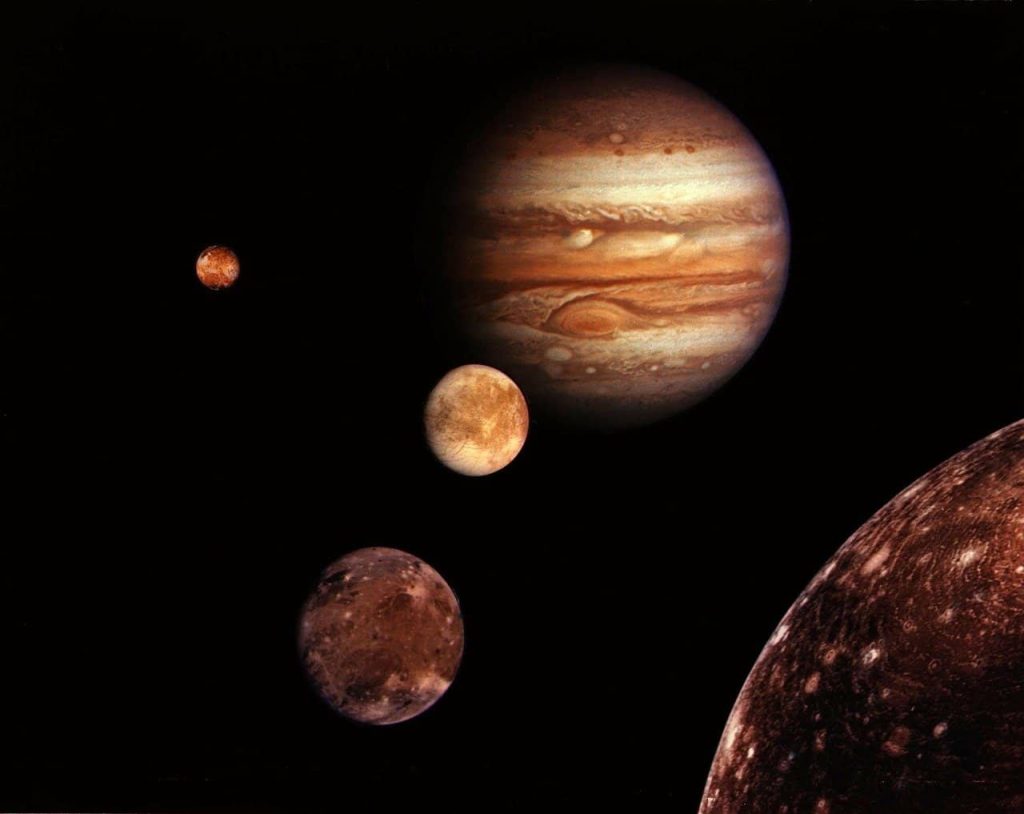Reglass leap for space with JUICE, ESA’s mission to explore Jupiter and its Moons
Reglass in space
Reglass successfully completed the supply of carbon fiber components for the main antenna designed by Thales Alenia Space – a joint venture with Thales Leonardo – that will be launched into space during ESA’s upcoming mission JUICE, aimed at exploring Jupiter’s Moons.
Reglass already built satellite parts for Thales’s Italian branch, a global player within the aerospace sector with whom the company has established a long-lasting collaboration. To manufacture the component, the company was able to rely on the innovative technologies that have been developed in the laboratories of its headquarters in Minerbio, near Bologna.

The mission
The JUICE mission, Jupiter Icy Moons Explorer, is aimed at investigating potential life-sustaining conditions in the subsurface oceans of Jupiter’s icy moons, especially on Ganymede. Scheduled for launch in 2022, the expedition will be a challenging one, starting from the path to reach its destination. The spacecraft will reach Jupiter in about 7 years, then it will enter its orbit before approaching some of the Jupiter’s moons, finally entering the orbit of Ganymede.
The aim of the mission is to investigate potential life-sustaining conditions on Jupiter’s icy satellites, where scientists have discovered the presence of water under the icy crust of the satellites. The European spacecraft will conduct research over Ganymede’s surroundings, a natural laboratory where nature, its evolution and the potential habitability of icy worlds can be investigated.
The JUICE mission will also analyze Jupiter’s atmosphere, as a way of studying the dynamics underlying the transport of energy and mass through its layers. To accomplish that, there will be ten different instruments aboard the JUICE spacecraft. Among these, JANUS, Rime and 3GM (created thanks to Italy’s contribution): the first is a camera system to investigate the jupiters’s moons morphology, the second is a radar specifically developed to investigate the underground of the satellites, the third is devoted to studying the extension of liquid oceans below the icy crust through gravitational field measurements.
Gravity assist
The distance of planet Jupiter from Earth is 5 times that of Earth from the Sun (150 million kilometres). To reach the planed minimizing the energy and fuel requirements, the mission will avail itself of gravity assist manoeuvres. This consists in taking advantage of the gravity of other planets within the Solar system, by approaching them with a specific speed and trajectory. In this way, the gravity of the planet can be used to increase the speed of the spacecraft towards its destination. As for the JUICE mission, the probe will perform 5 different flybys before reaching the Jupiter orbit. The launch is therefore to be organized with extreme precision, to make sure that the planets that are to be approached will be in the most suitable position for the gravity assist manoeuvre.
Europe and Italy’s role
It is also thanks to this prestigious mission, a European initiative, that the role of our country is brought into the spotlight, along with the vitality of the Italian aerospace industry, marked by great investments in research and development. Our aerospace industry has found a solid position as the 4th largest one in Europe and the 7th in the world. It can generate total revenue of 13,5 billion euros, which is equivalent to 0,65% of the country’s GDP. The total added value amounts to approximately 12 billion euros. Innovation and research are to be considered a fundamental factor, on which the industry employs 10% of the revenue, matching the European average. It is a formidable authority, composed of global players supported by small and medium-sized enterprises, which make up 90% of the total amount.
Among these, Reglass stands out thanks to its inclination for innovation (proven by the many technologies it can boast) and the excellent quality and precision of its products. These have been obtained thanks to several decades of experience carbon fiber manufacturing (from pre-preg to complete tubes), combined with the high-level professionalism of its technicians – who are responsible for the production of tubes designed for extreme performance – and its designated laboratories.
The totality of these factors is what has granted Reglass the possibility to establish ad hoc partnerships with the large enterprises of aerospace industry, for the development and the manufacture of carbon fiber satellite components and antennas.
